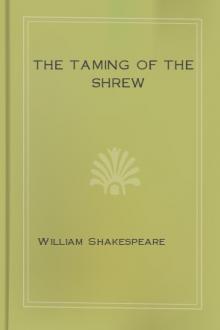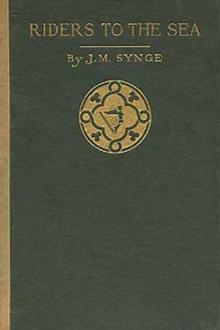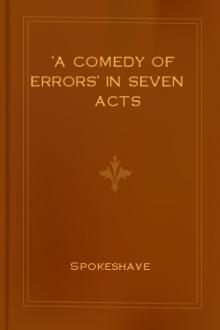Genre Drama. Page - 5

forgot your name; but, sure, that partWas aptly fitted and naturally perform'd.
PLAYER.I think 'twas Soto that your honour means.
LORD.'Tis very true; thou didst it excellent.Well, you are come to me in happy time,The rather for I have some sport in handWherein your cunning can assist me much.There is a lord will hear you play to-night;But I am doubtful of your modesties,Lest, over-eying of his odd behaviour,--For yet his honour never heard a play,--You break into some merry passionAnd so offend him; for I tell you, sirs,If you should smile, he grows impatient.
PLAYER.Fear not, my lord; we can contain ourselves,Were he the veriest antick in the world.
LORD.Go, sirrah, take them to the buttery,And give them friendly welcome every one:Let them want nothing that my house affords.
[Exit one with the PLAYERS.]
Sirrah, go you to Barthol'mew my page,And see him dress'd in all suits like a lady;That done, conduct him to the drunkard's chamber,And call him 'madam,' do him obeisa

ave himself from cipherdom, find an affirmative position. His thousand and three affairs of gallantry, after becoming, at most, two immature intrigues leading to sordid and prolonged complications and humiliations, have been discarded altogether as unworthy of his philosophic dignity and compromising to his newly acknowledged position as the founder of a school. Instead of pretending to read Ovid he does actually read Schopenhaur and Nietzsche, studies Westermarck, and is concerned for the future of the race instead of for the freedom of his own instincts. Thus his profligacy and his dare-devil airs have gone the way of his sword and mandoline into the rag shop of anachronisms and superstitions. In fact, he is now more Hamlet than Don Juan; for though the lines put into the actor's mouth to indicate to the pit that Hamlet is a philosopher are for the most part mere harmonious platitude which, with a little debasement of the word-music, would be properer to Pecksniff, yet if you separate the real hero, inartic

EOPATRA.
Hear the ambassadors.
ANTONY.
Fie, wrangling queen!
Whom everything becomes,--to chide, to laugh,
To weep; whose every passion fully strives
To make itself in thee fair and admir'd!
No messenger; but thine, and all alone
To-night we'll wander through the streets and note
The qualities of people. Come, my queen;
Last night you did desire it:--speak not to us.
[Exeunt ANTONY and CLEOPATRA, with their Train.]
DEMETRIUS.
Is Caesar with Antonius priz'd so slight?
PHILO.
Sir, sometimes when he is not Antony,
He comes too short of that great property
Which still should go with Antony.
DEMETRIUS.
I am full sorry
That he approves the common liar, who
Thus speaks of him at Rome: but I will hope
Of better deeds to-morrow. Rest you happy!
[Exeunt.]
SCENE II. Alexandria. Another Room in CLEOPATRA'S palace.
[Enter CH

've some business to talk over with the old lady.
FARNCOMBE.
[Nodding to ROPER and then coming forward and addressing MRS. UPJOHN.] I-- er-- I think I'll go for a little walk and come back later on, if I may.
MRS. UPJOHN.
[Contentedly.] Oh, jest as you like.
FARNCOMBE.
[Moving towards the door.] In about a quarter-of-an-hour.
MRS. UPJOHN.
If we don't see you again, I'll tell Lil you've been 'ere.
FARNCOMBE.
[At the door.] Oh, but you will; you will see me again.
MRS. UPJOHN.
Well, please yourself and you please your dearest friend, as Lil's dad used to say.
FARNCOMBE.
Thank you-- thank you very much.
[He disappears, closing the door after him.
MRS. UPJOHN.
[To ROPER, looking up.] I b'lieve you gave that young man the 'int to go, Uncle.
ROPER.
I did; told him I wanted to talk business with you.
MRS. UPJOHN.

obviously disregards all the canons and unities and other things which every well-bred dramatist is bound to respect that his work is really unworthy of serious criticism (orthodox). Indeed he knows no more about the dramatic art than, according to his own story in "The Man of Destiny," Napoleon at Tavazzano knew of the Art of War. But both men were successes each in his way--the latter won victories and the former gained audiences, in the very teeth of the accepted theories of war and the theatre. Shaw does not know that it is unpardonable sin to have his characters make long speeches at one another, apparently thinking that this embargo applies only to long speeches which consist mainly of bombast and rhetoric. There never was an author who showed less predilection for a specific medium by which to accomplish his results. He recognized, early in his days, many things awry in the world and he assumed the task of mundane reformation with a confident spirit. It seems such a small job at twenty to set the times

COUNTESS.
Be thou blest, Bertram, and succeed thy father
In manners, as in shape! thy blood and virtue
Contend for empire in thee, and thy goodness
Share with thy birthright! Love all, trust a few,
Do wrong to none: be able for thine enemy
Rather in power than use; and keep thy friend
Under thy own life's key: be check'd for silence,
But never tax'd for speech. What heaven more will,
That thee may furnish and my prayers pluck down,
Fall on thy head! Farewell.--My lord,
'Tis an unseason'd courtier; good my lord,
Advise him.
LAFEU.
He cannot want the best
That shall attend his love.
COUNTESS.
Heaven bless him!--Farewell, Bertram.
[Exit COUNTESS.]
BERTRAM.
The best wishes that can be forg'd in your thoughts [To HELENA.] be servants to you! Be comfortable to my mother, your mistress, and make much of her.
LAFEU.
Farewell, pretty

her worth. In my true heart
I find she names my very deed of love;
Only she comes too short,--that I profess
Myself an enemy to all other joys
Which the most precious square of sense possesses,
And find I am alone felicitate
In your dear highness' love.
Cor.
[Aside.] Then poor Cordelia!
And yet not so; since, I am sure, my love's
More richer than my tongue.
Lear.
To thee and thine hereditary ever
Remain this ample third of our fair kingdom;
No less in space, validity, and pleasure
Than that conferr'd on Goneril.--Now, our joy,
Although the last, not least; to whose young love
The vines of France and milk of Burgundy
Strive to be interess'd; what can you say to draw
A third more opulent than your sisters? Speak.
Cor.
Nothing, my lord.
Lear.
Nothing!
Cor.
Nothing.
Lear.
Nothing can come of nothing: speak again.
Cor.
Unhappy that I am, I cannot heave
My heart into my mouth

y the sea.
CATHLEENHow would they be Michael's, Nora. How would he go the lengthof that way to the far north?
NORAThe young priest says he's known the like of it. "If it'sMichael's they are," says he, "you can tell herself he's got aclean burial by the grace of God, and if they're not his, letno one say a word about them, for she'll be getting her death,"says he, "with crying and lamenting."
[The door which Nora half closed is blown open by a gust ofwind.]
CATHLEEN[Looking out anxiously.]
Did you ask him would he stop Bartley going this day with thehorses to the Galway fair?
NORA"I won't stop him," says he, "but let you not be afraid.Herself does be saying prayers half through the night, and theAlmighty God won't leave her destitute," says he, "with no sonliving."
CATHLEENIs the sea bad by the white rocks, Nora?
NORAMiddling bad, God help us. There's a great roaring in thewest, and it's worse it'll be getting when the tide's turned tothe wind.
[She goes over to

ent to put Lord Goring into a class quite by himself. But he is developing charmingly!
LORD CAVERSHAM. Into what?
MABEL CHILTERN. [With a little curtsey.] I hope to let you know very soon, Lord Caversham!
MASON. [Announcing guests.] Lady Markby. Mrs. Cheveley.
[Enter LADY MARKBY and MRS. CHEVELEY. LADY MARKBY is a pleasant, kindly, popular woman, with gray hair e la marquise and good lace. MRS. CHEVELEY, who accompanies her, is tall and rather slight. Lips very thin and highly-coloured, a line of scarlet on a pallid face. Venetian red hair, aquiline nose, and long throat. Rouge accentuates the natural paleness of her complexion. Gray-green eyes that move restlessly. She is in heliotrope, with diamonds. She looks rather like an orchid, and makes great demands on one's curiosity. In all her movements she is extremely graceful. A work of art, on the whole, but showing the influence of too many schools.]
LADY MARKBY. Good evening, dear Gertrude! So kind of you to let me bring my

e land.
_Quezox:_ But, noble Francos, we now wend our wayTo meet the vermin which do suck our blood,And they with tongues which serpent-like can charmMay fool thee with their tales of dire intent.
_Francos: (striking his breast):_
Fear not, they soon shall feel how vain it were
To seek to trick one who, in halls of state,
Hath met the wiles of shrewd, self-seeking men,
But to ward off attack with virtue's shield.
_Captain and Seldonskip approach._
_Captain:_ Most noble potentate, as I my rounds
Of observation make, it pleasures me
Most mightily, to make obeisance to
The one so honored by his native land.
As captain of a vessel may be judged
By those subordinate to his command,
So do I quick conception of thee form.
By the broad mental gifts of Seldonskip
Who were the hose, through which thy mind doth squirt Most sapient thought, for mankind's betterment.
_Seldonskip:_ You bet his